Classroom Connections,
5/6 A
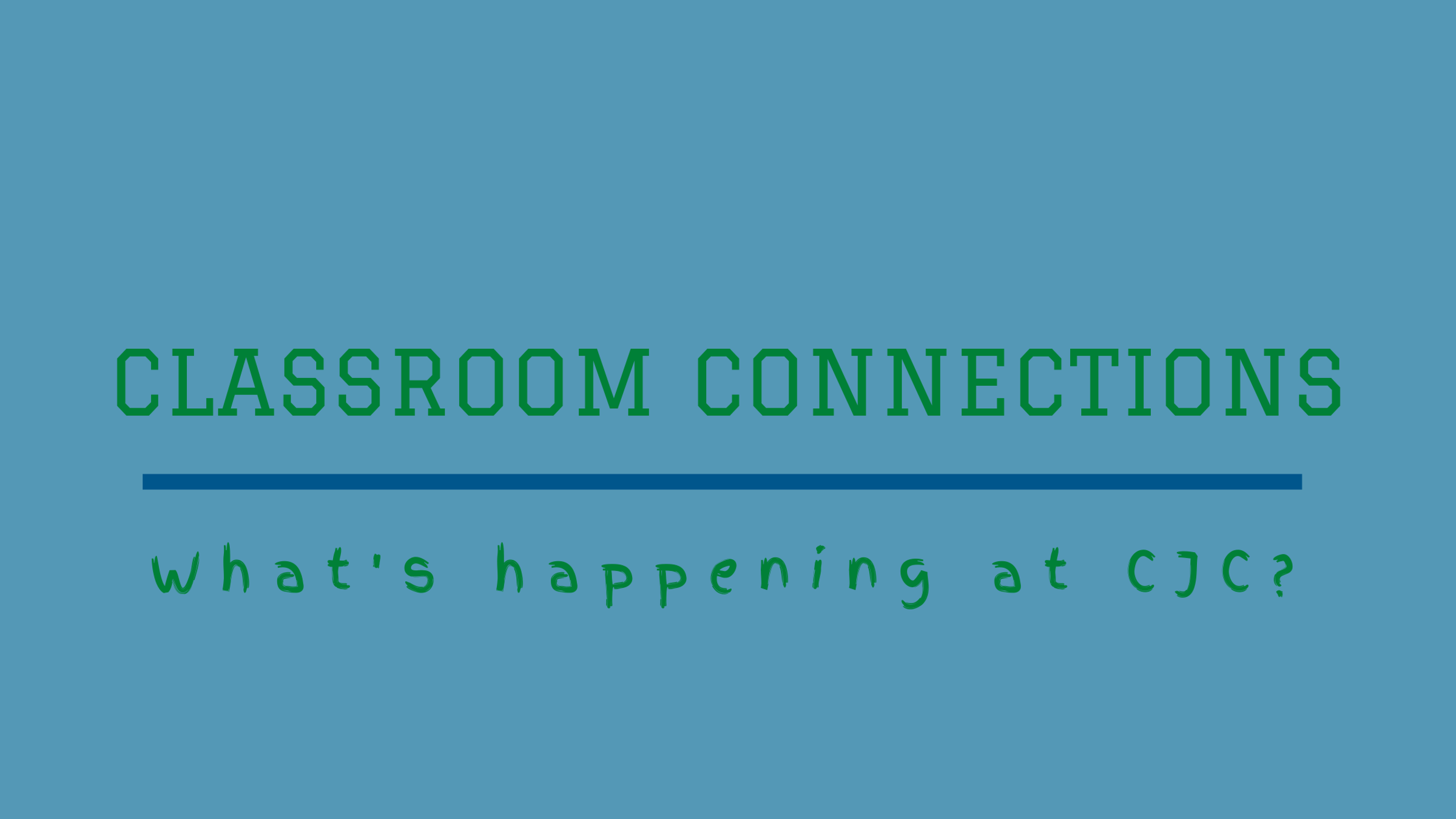
Classroom Connections,
5/6 A
Debating
Students in 5/6A have been developing the skills and persuasive techniques required to be an effective debater. They have been learning the importance of convincing the audience of their point of view. Students identified debating topics that were of particular interest to them, and most importantly, topics that spark controversy, such as:
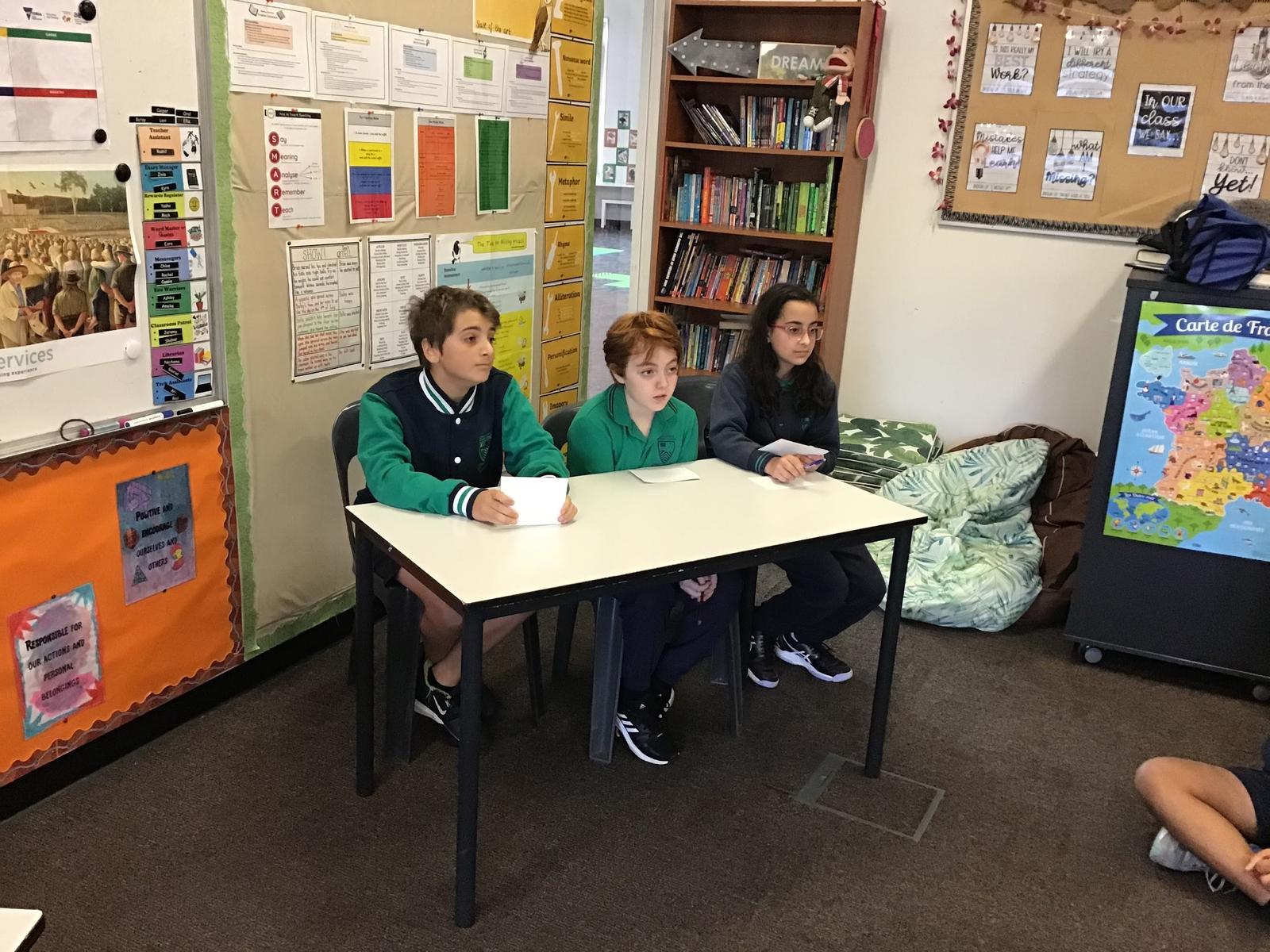

‘Everybody Should Be Vegetarian’. Once assigned to teams, students then discovered their topic and whether they would be representing arguments from a ‘Negative’ or ‘Affirmative’ point of view. They have not only had to develop their understanding of each speaker’s key responsibility within the team, but also the importance of delivering strong, convincing speeches and quick rebuttal to counteract the arguments of their opponents. They have been challenged to question their current thinking and thoughtfully consider other points of view.
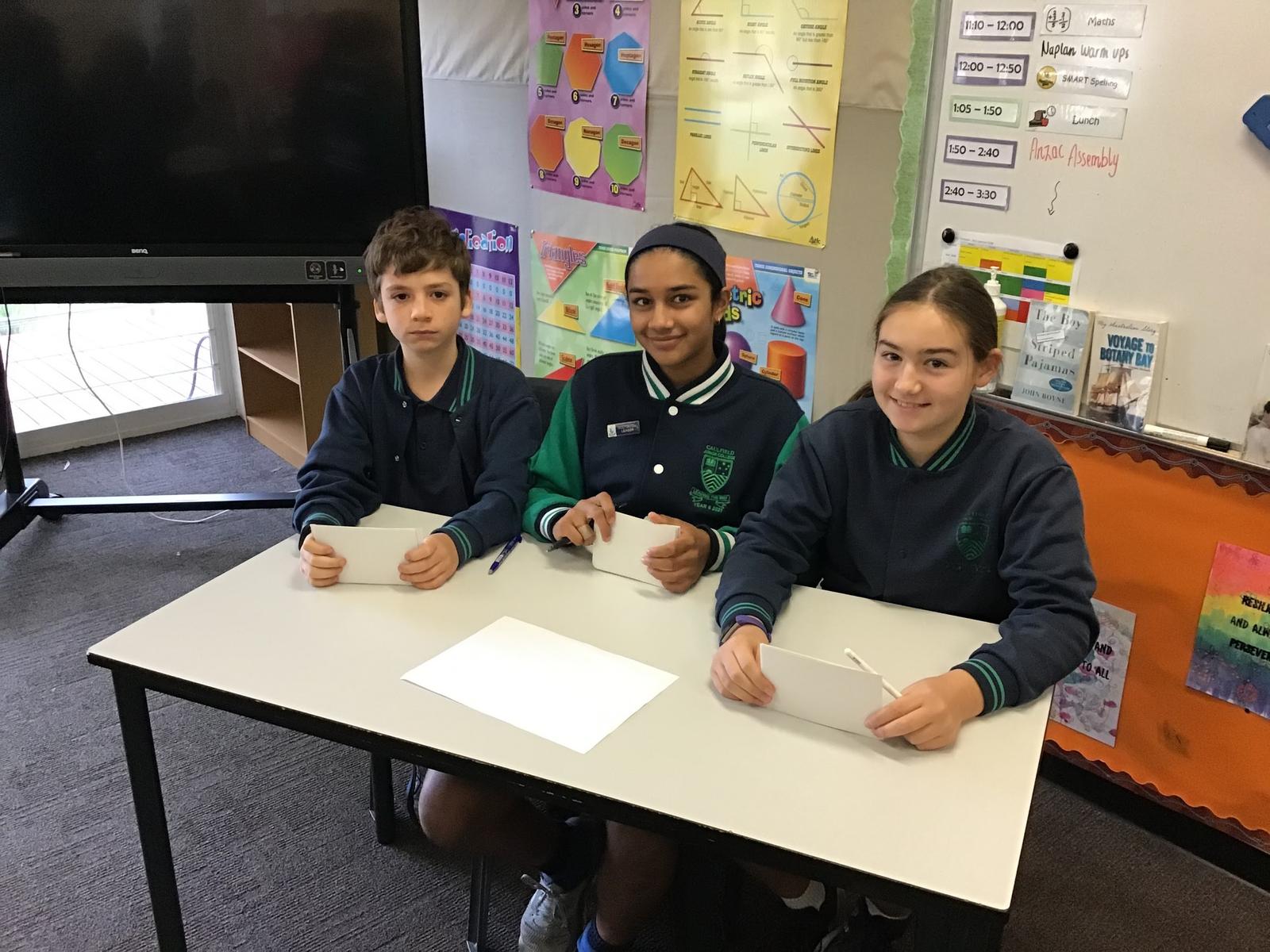

This has proved to be a fantastic and meaningful learning activity for the students. They have gained confidence when speaking in front of others, developed their critical thinking skills and demonstrated a greater understanding of how a formal debate is run. It has been exciting to compete against the students in 5/6B and for both classes to discuss and provide feedback to each speaker and then ultimately decide which team should win due to the strength of their arguments.
During our debates against 5/6B, Miss Spencer and Mr Beal announced a ‘best speaker’ for each debate. The best speakers were those students who presented strong and convincing arguments and articulated themselves confidently and clearly and demonstrated the ability to engage their audience.
The nominated ‘best speakers for 5/6A were: Elad G, Ori D and Jed L.
Reading
Students have been learning the roles of each member in a Reciprocal Reading group.
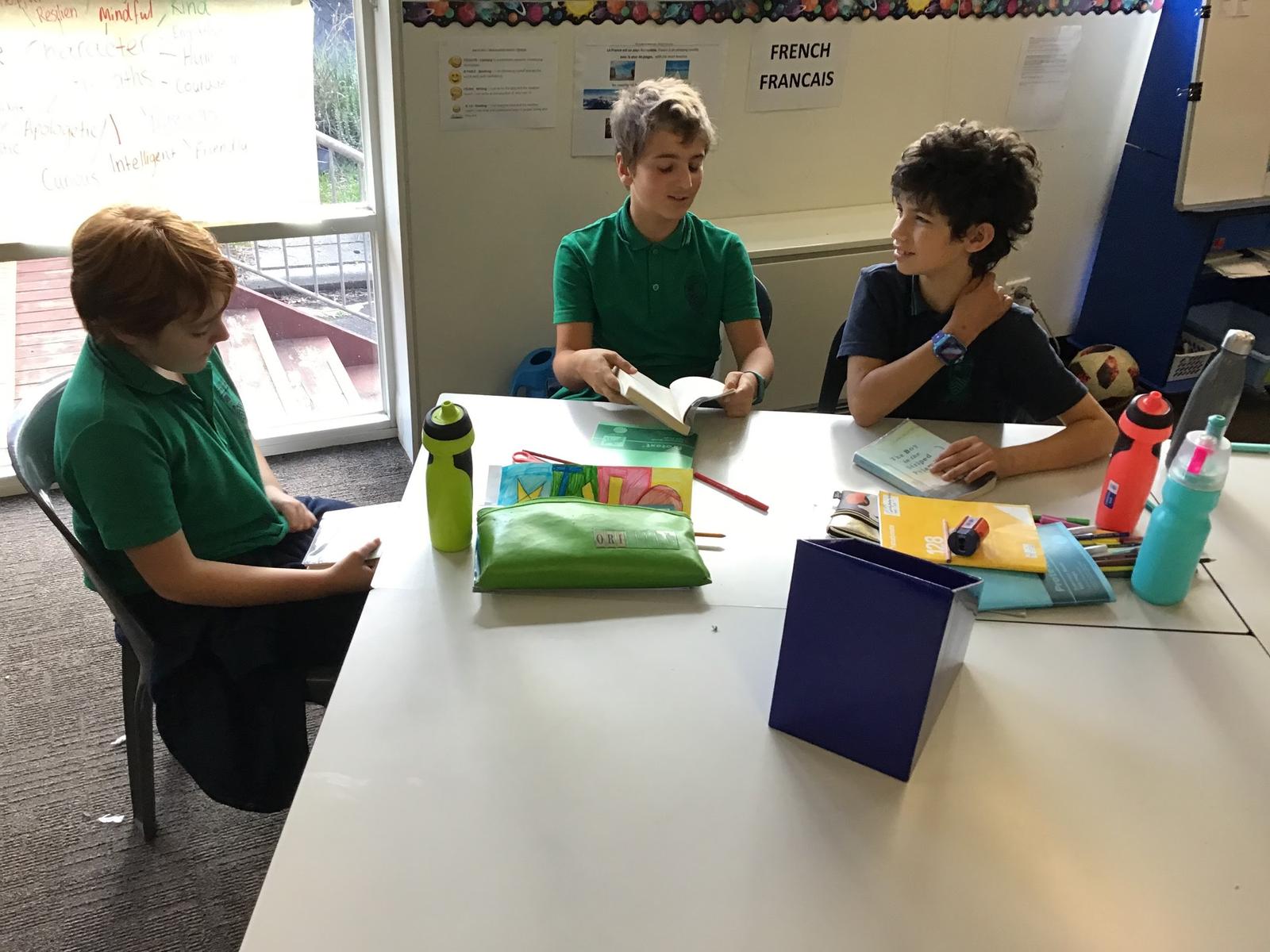

They have been taught to take on group roles aimed to develop deeper insight into the text as well as their own comprehension. Reciprocal Reading emphasises teamwork and a collaborative approach by assisting one another to clarify new information and vocabulary, summarise the key ideas, offer reasonable predictions based on what they have read already and ask questions to stimulate further discussion ‘before’, ‘during’ and ‘after’ reading.
The roles in Reciprocal Reading are:
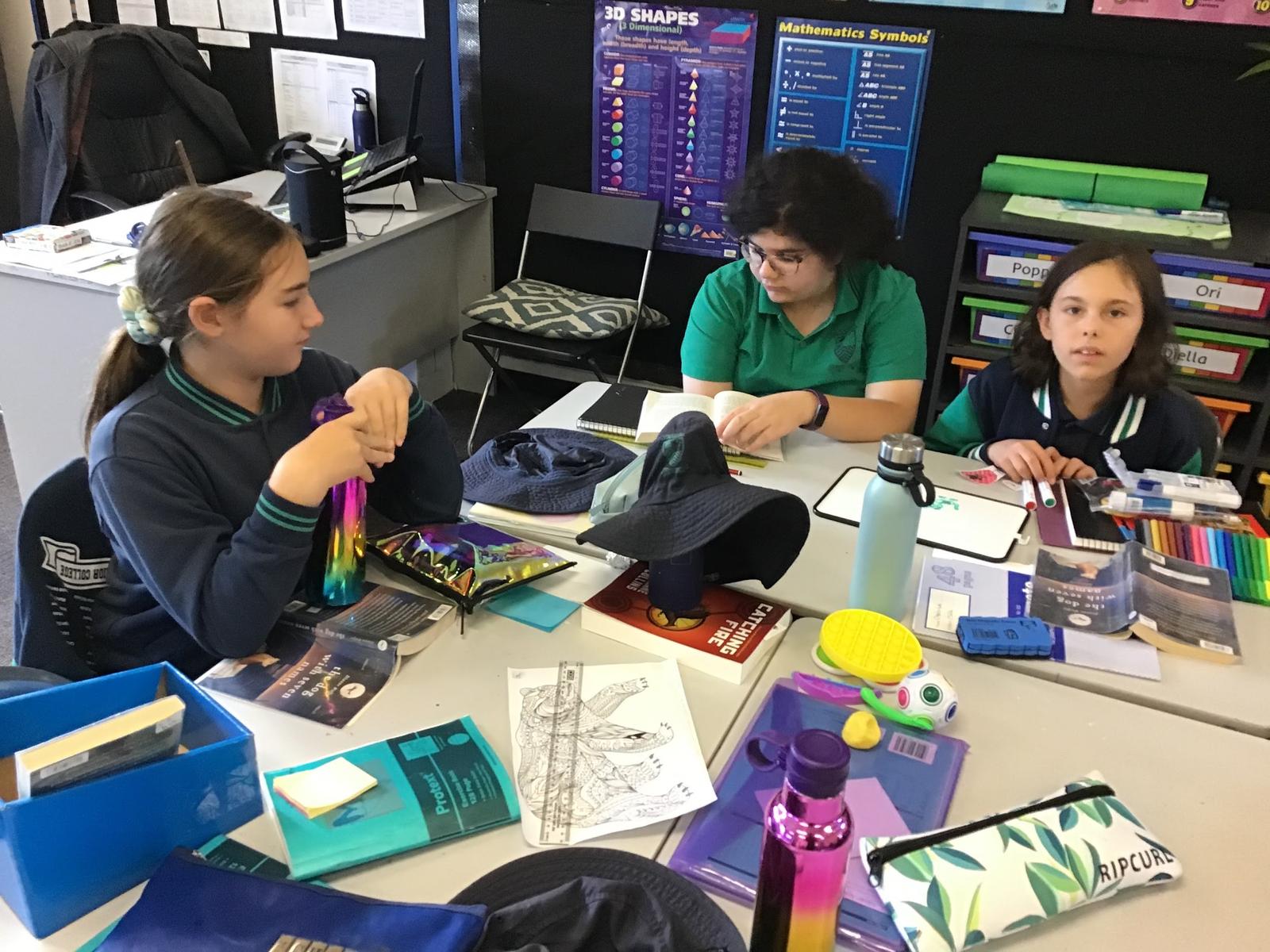

Each group is currently studying a different novel and learning to take on the various roles in the group.
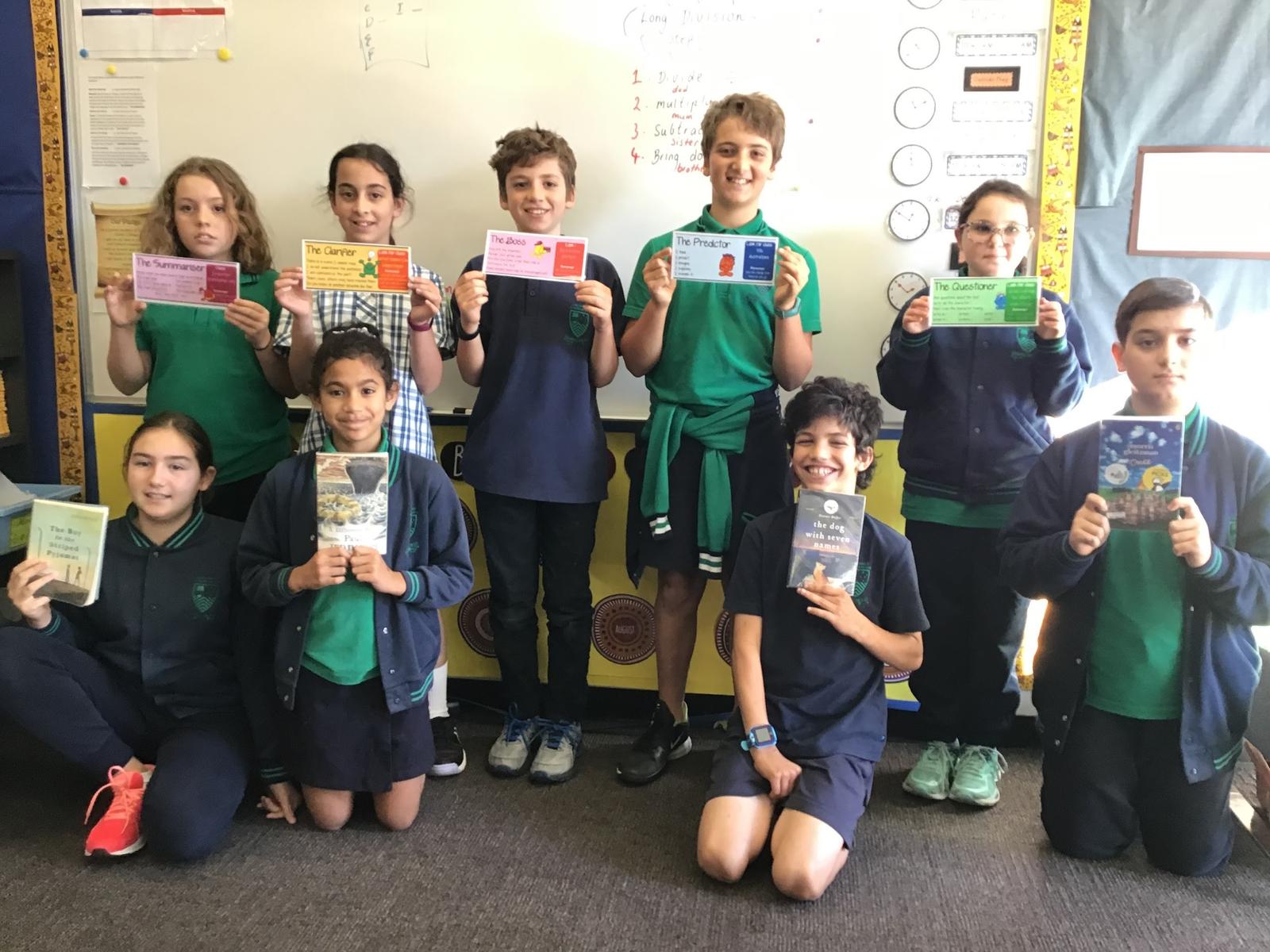

Special mention to Charvi T. (Multi Media Leader) for working on the layout and photo placement for our 5/6A newsletter item.